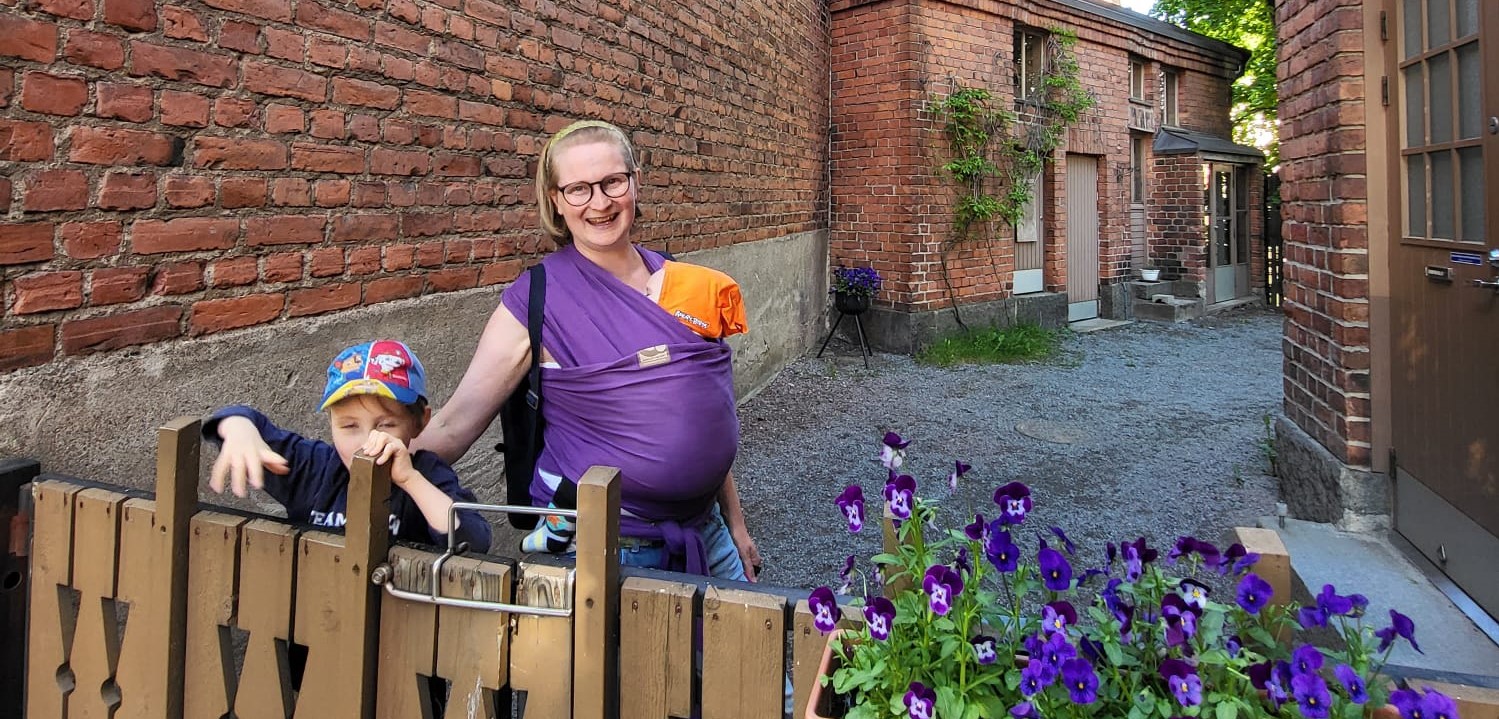I am Riikka a PhD student in social anthropology from the Faculty of Social Sciences at the University of Tampere. I am also a single parent of two children.
My current study career began in 2014 with early childhood education studies at the University of Jyväskylä. These studies got a new meaning in the summer of 2015 when my first child was born. During the same summer more asylum seekers than what Finland had used to started to arrive. The importance of this contemporaneity was concrete in our lives then – we participated in activities with asylum seekers and I found my passion for equality in discussions concerning migration. The meanings of this assemblage of newly born first child, arriving asylum seekers, educational studies and the harsh discourses swirling in the social media carry to this moment, when I am doing my PhD research with under school aged children living in reception centres.
My educational journey continued in 2018 to Tampere for Master’s studies in gender studies, Social Sciences. My masters thesis deals with gender norms and physicality in the context of early childhood education.
After completing my master’s degree in 2020, I got a job as a researcher in a project called Flows of Power. I also started preparing a research plan for my PhD research.
My PhD research is supervised by academy researcher, docent Mari Korpela (D.Soc.Sc.) and tenuretrack professor, docent Mervi Kaukko (Ed.D.). The very strong expertise of my supervisors in the field of research with children helped me work on my research plan and my funding applications so that in 2021 I received two grant awards. In November 2021 my second child was born and the next day I got the grant decision from Kone Foundation, and thus I was able to continue my maternity leave knowing that the financial side of my research would be covered.
My parental leave ended in the fall of 2022 and academic life as a single parent of two children began. The demands, assumptions and expectations of the academic world may be in conflict with the realities that make up the daily lives of me and many other researchers’ with families. One of the goals of my research work is to bring into the front the family and life situations from which academic work is done, as well as the structures that pose unnecessary challenges to that work. (see Alava & Robertson, 2022.)
When I go to the reception centre to produce knowledge with the children who live there, my own children are with me – maybe not concretely everyday but as thoughts, bodily feelings and concerns. My own parenting is a big part of my research: it affects the questions I ask; it directs my attention; it opens doors for me and closes others. (see Korpela et al., 2016.)
Equality and justice are important values for me. The force pushing me forwards is the hope to shape the society to be a just place for all. One way that this can be done is by knowledge production and the grievances brought up by research. Together we can shape the society in such a way that equality and justice are realized in the everyday lives of all of us living here.
Alava, H., & Robertson, M. (2022). Family, Failure and Fatigue in the Field: A Patchwork of Omissions. The African Journal of Gender and Religion, 28(1), 98–107. https://doi.org/10.14426/ajgr.v28i1.1353
Korpela, M., Hirvi, L., & Tawah, S. (2016). NOT ALONE: DOING FIELDWORK IN THE COMPANY OF FAMILY MEMBERS. Suomen Antropologi: Journal of the Finnish Anthropological Society, 41(3), 3–20. https://journal.fi/suomenantropologi/article/view/60337

